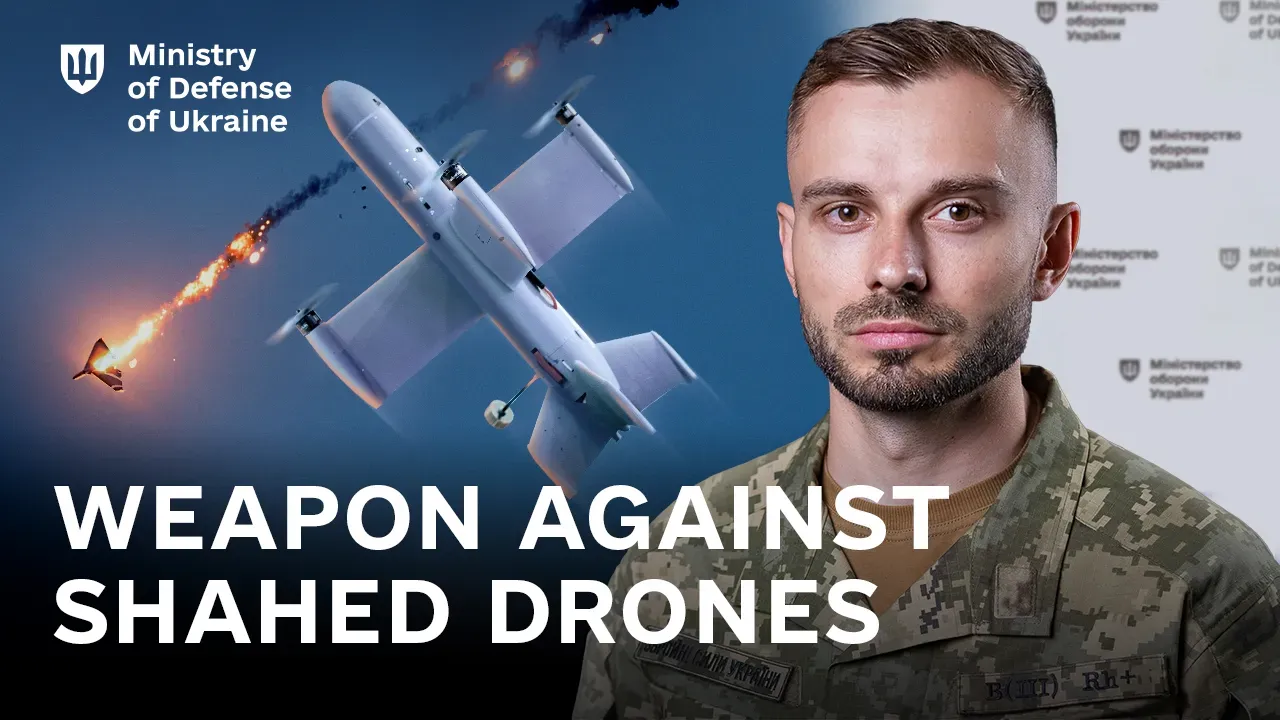Octopus interceptor, German assistance, “Azov” and “Khartiia” join DOT-Chain Defence – MoD weekly brief

Ukraine has launched serial production of its Octopus interceptor designed to counter Shahed drones. Germany is increasing its military assistance to Ukraine. Meanwhile, the Khartiia and Azov brigades have joined the DOT-Chain Defence marketplace.
These and other key MoD news items are featured in this week’s brief.
Octopus: interceptor against Shahed drones
Ukraine has launched serial production of its new ‘Octopus’ interceptor designed to counter Shahed drones. The Ministry of Defence has already transferred the technology to the first three manufacturers, with another eleven preparing production lines. The Octopus is a Ukrainian interception technology developed by the Armed Forces of Ukraine and validated in combat. It operates effectively at night, under enemy EW interference, and at low altitudes.
More assistance from Germany
Germany is increasing its military assistance to Ukraine to €12 billion in 2026. Defence Minister Denys Shmyhal made the announcement after holding a videoconference with defence ministers from partner nations. Germany, in particular, intends to expand its deliveries of air defence assets, ammunition, and drones.
German Defence Minister Boris Pistorius also announced an additional Berlin contribution of at least €150 million to the initiative for procuring U.S.-made weapons for Ukraine.
In addition, Denys Shmyhal announced that preparations are underway for the next Ramstein-format meeting, scheduled for 3 December.
“Khartiia” and “Azov” brigades join DOT-Chain Defence
Brigades of the ‘Azov’ and ‘Khartiia’ Corps will begin ordering strike assets directly through the DOT-Chain Defence marketplace. Representatives of the units of the National Guard of Ukraine have already completed the required training and will soon be able to order drones directly from manufacturers.
DOT-Chain Defence is a digital platform that enables combat units to order the equipment they need at the front quickly, transparently and without unnecessary bureaucracy. The marketplace already offers FPV drones, reconnaissance UAVs, heavy bombers and EW assets. To date, 180 brigades have been granted access to the marketplace.
Defence Minister undertakes a working visit to the frontline
This week, the Defence Minister made another working visit to the frontline, visiting the command posts of the 57th Brigade named after Kish otaman Kost Hordiienko and the 113th Territorial Defence Brigade. The brigades’ warriors continue to hold the line in Vovchansk. Communications and drones, rotation schedules, logistics and medical support were among the key issues discussed, all of which require effective solutions.
Denys Shmyhal also visited the defenders of Donetsk region, in particular the 100th Brigade and the 10th Mountain Assault Brigade. The focus was on supplying EW assets, drones and ground robotic systems.
In the Dnipropetrovsk region, the Minister met with service members of the 59th Assault Brigade of the Unmanned Systems Forces. The discussion covered the current frontline situation and the urgent issues of sustainment and supply. At the command post of the Unmanned Systems Forces, discussions focused on increasing personnel strength and the grouping’s development plans for next year.
The Minister thanked the warriors for their resilience.
Presentation of the ‘Wounded Warrior Package’
The Ministry of Defence presented the ‘Wounded Warrior Package’ for service members who have been wounded. Our specialists have developed and begun procuring adaptive clothing featuring a loose fit and textile hook-and-loop (Velcro-type) fasteners. Such design features provide medical personnel with quick, painless access to injured areas, allowing service members to feel more comfortable. The clothing also reflects the specific needs of women and men.
To date, the Ministry of Defence has already delivered 50,000 adaptive clothing items — directed primarily to military medical facilities in frontline and border regions. By the end of the year, the Ministry of Defence is set to deliver over 450,000 adaptive clothing items and 50,000 hygiene kits.